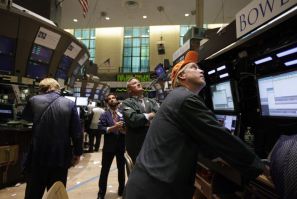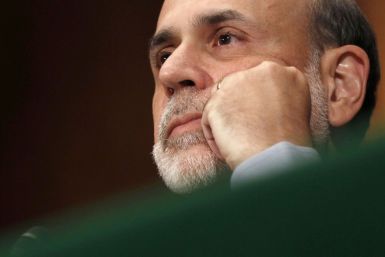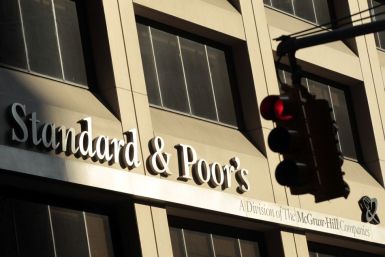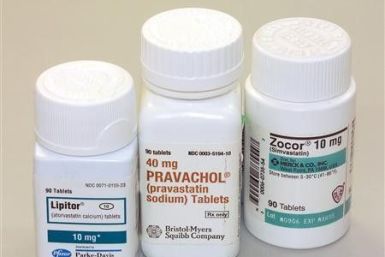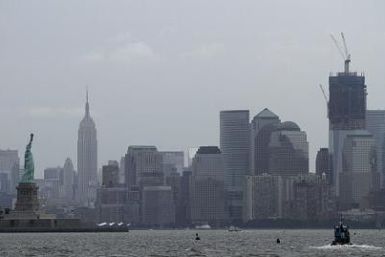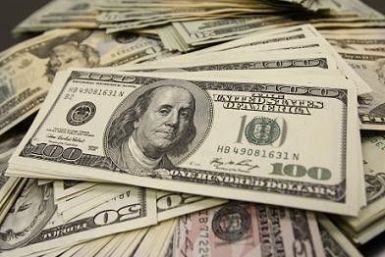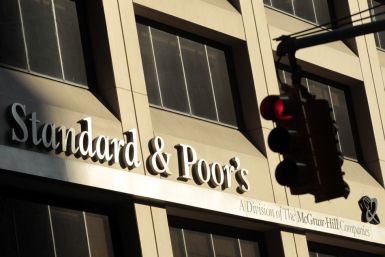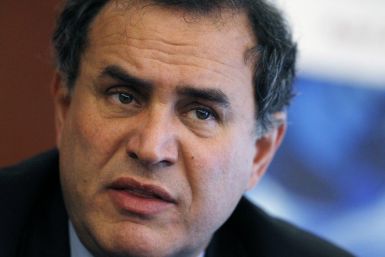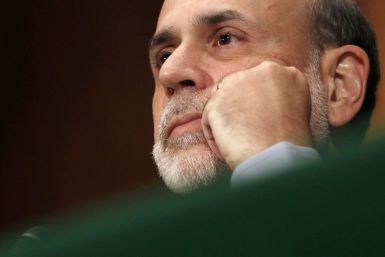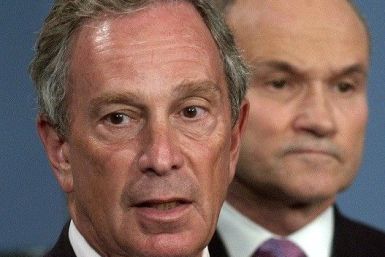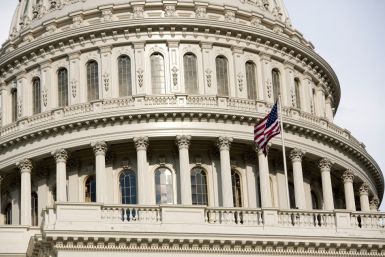With U.S. and global stock markets reeling, investors have sought a traditional safe-haven, but it?s one that may surprise some: U.S. Government bonds. How is it possible that investors would want the debt of the nation they believe has a national debt that's too high?
The U.S. Federal Reserve will announce its monetary policy Tuesday following an unprecedented downgrade of the U.S.Government's credit rating by Standard & Poor's and the markets will likely look to Fed Chairman Ben Bernanke to provide appropriate comments on the state of the nation's banking system and its fiscal condition.
In a White House address Monday, President Barack Obama said Standard & Poor's credit downgrade of the United States represented a statement on the nation's political will. Underscoring that "the U.S. is still an AAA country," Obama again called on congressional officials to make the tough decisions necessary to balance the budget long-term.
The market's stance heading into the new week is one of caution, following S&P's stunning and controversial downgrade of the U.S. Government's credit rating. Essentially, Wall Street has to figure out if S&P was ahead of the curve, or was remarkably off-base in its analysis, and it's too soon to tell which view will prevail.
Recent industry buzz on Pfizer's alleged strategy to sell its cholesterol reducer-blockbuster drug, Lipitor as an over-the-counter pill, reinforces debate on the safe compliance of prescription drugs when sold as OTC's.
S&P?s stunning and controversial downgrade Friday in part reflected the firm?s assumptions about the U.S. political system?s ability to solve its problems. Others hold a more optimistic view, as Winston Churchill did. Churchill said, ?In the end, you can count on America to do the right thing - after she?s exhausted all other possibilities.?
Hewlett Packard reduced the price of its TouchPad tablet computer again, highlighting the uphill battle manufacturers will need to overcome as they go head-to-head against the dominant Apple iPad line of tablets.
While S&P?s downgrade of the U.S. Government?s credit rating is controversial, most agree that the U.S. fiscal condition is serious. And while both Democrats and Republicans increased the budget deficit, three major policy errors by President George W. Bush last decade substantially worsened the U.S.?s fiscal condition, and the nation has been trying to recover ever since.
America is broken. Here are five ways to fix the nation's health.
In a stunning development, Standard & Poor?s Friday downgraded the U.S. Government's credit rating from AAA to AA+, arguing Washington has made inadequate progress cutting the budget deficit. The U.S. Treasury disagrees with S&P?s analysis and conclusion, but interest rates on U.S. home mortgages and car loans are likely to rise.
Dolce & Gabbana have deleted posts on its official Facebook Page after Change.org members posted messages demanding that the company ban sandblasting.
In the states, oil has been the stuff of riches and the glamour energy form. The reality is, however, in the 21st century the preferred and superior U.S. energy form could very well be domestic natural gas.
One of the world's leading economists says don't get giddy over the July jobs report, which indicated the U.S. economy created a better-than-expected 117,000 jobs. NYU Professor Nouriel "Dr. Doom" Roubini, who accurately predicted the housing crisis four years ago, says U.S. GDP will be sub-par in 2011 and the risk of a recession is real.
Up to now, the dispensers of global financial justice -- the bond vigilantes -- have given the United States a free ride regarding its large budget deficit and national debt. But history say that can't last forever, which is why it's in the nation's long-term interest to enact the second half of budget cuts called for in the U.S. debt deal.
The U.S. economy unexpectedly added 117,000 jobs in July and the unemployment rate dipped to 9.1 percent, the U.S. Labor Department announced Thursday. Equally significant, the private sector added 154,000 jobs. The report was a pleasant surprise, but the nation is still in a deep hole job-wise -- short about 14 million jobs.
The Bank of New York Mellon announced Thursday that it will start charging large customers a small fee for taking their deposits. Starting August 8, clients with $50 million or more will be charged 0.13 percentage points for balances 110 percent above their average balance.
The U.S. debt deal means that federal spending will now generate even less demand in the quarters ahead, in an economy that?s already weak, and with an unemployment rate at 9.2 percent. To say the Fed has been monitoring the situation would be an understatement.
The U.S. Debt Deal crisis has claimed another casualty: the U.S. air transportation system -- Congress has left town without funding a key Federal Aviation Administration budget: as a result, 70,000 construction and related workers have been idled, and 4,000 furloughed, work on projects valued at $11 billion has been delayed.
New York City Mayor Mike Bloomberg is not waiting for Congress to address long-standing social concerns: he's donating $30 million of his money to launch a new $127 million program to improve the lives of thousands of young black and Latino men, who are cut off from New York City's civic, educational, and economic life.
The U.S. Postal Service, like much of the U.S. Government these days, is in belt-tightening mode. What's that mean for your local post office?
Is there oil statistic that can provide a rough "report card" on the U.S. economy and its outlook? Indeed there is.
Is there one statistic that can provide a quick-read on the U.S. economy's health and outlook? Indeed there is: it's the price of oil.
Russian Prime Minister Vladimir Putin did not mince words describing the United States' conduct during the debt deal crisis. Putin did, however, recognize that the United States, in the end, had the common sense to do the right end.
"Austerity" and "balance the federal budget" are the dominant themes in today's Washington political culture. Name a wasteful, inefficient federal program and that's a program this Congress may zero-in on for elimination...unless it's a U.S. post office.
Congress has done the urgent -- passed the U.S. debt deal to help eliminate the budget deficit. But what about an equally important U.S. problem: the jobs deficit?
Would distributing $3,000 gift cards to every American over age 16 get the U.S. economy out of its slump, and create more jobs? The tactic is unconventional, but if the economy doesn't start creating more jobs soon, Congressional leaders may have to implement the unconventional.
On Tuesday, President Barack Obama signed a bill to raise the U.S. debt ceiling, preventing the nation from defaulting for the first time in its history.
The Senate Tuesday easily passed the debt deal bill, 76-24, and immediately sent it to President Barack Obama, who is expected to sign it very soon. When the president does, the world's largest and most-technologically advanced economy will have averted a credit market-constraining default and ended a bitter political chapter.
The U.S. is one Senate vote away from averting a federal government default and toward taking a step in the direction of fiscal health: The Senate is expected to vote and pass the bipartisan debt deal legislation Tuesday around noon EDT, and President Barack Obama is expected to sign it quickly.
Medicare payments to nursing homes would now be slashed 11.1 percent beginning October 1, 2011. This has led to the health care sector witnessing the first triggers of Medicare hospital reimbursement cuts in lieu of raising the federal debt ceiling.






